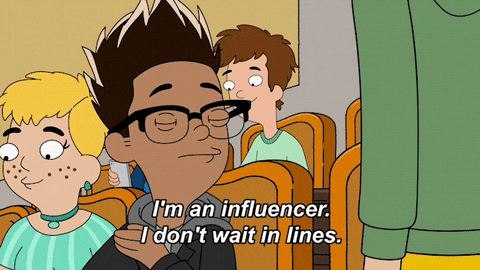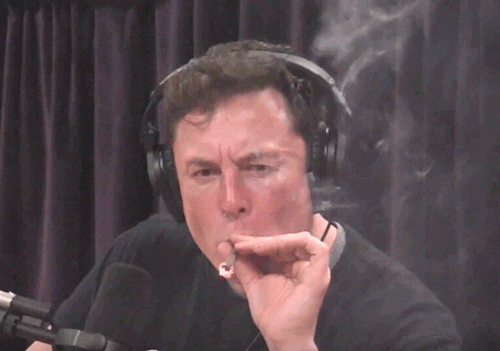The Solo Corporation
Through The Lens Of The European Super League
Iman Olya
23rd April 2021
Part 1: Brief European Super League (ESL) Commentary
Part 2: The Creator Economy and Its Current Fragility
Part 3: The Creator Economy Beyond Pouts
Part 4: The Unbundling From Institutions
Part 5: The Natural Next Steps
Part 1: Brief ESL Commentary
The proposed European Super League (ESL) caused existential dread to most football fans in April 2021. This memo does not deeply deconstruct the merits or downfalls of the proposal. But if you want some idea of who Pérez is or what the ESL proposals represented, the picture below may help.
Rather, this essay will show why the ESL proposal is just a reflection of the emerging monetisation of the individual and development of the solo corporation.
i. Why did the ESL happen?
The ESL was born from the desire of 12 elite European football clubs to garner a fairer allocation of revenue based on their higher perceived brand value. The business plan was based on using data that the biggest matches get the most viewers and achieve the highest revenue - i.e. solidifying the fact that the largest clubs bring in the biggest paydays when they play each other.
It was also a big middle finger to FIFA and UEFA, the corrupt governing bodies of world and European football. And Pérez, The Thanos of Football, has long been scheming to get more money for his Real Madrid to fuel the continuation of his Galáctico strategy. This has become more prescient now given his beloved Real are c. €700m in debt and 74% of expenditure is on player wages.
In simple terms, the bigger clubs believed: (1) they create the big bucks in the European leagues (Champions League and Europa League) and (2) the institutions governing these competitions do not pay up fairly.
ii. Why did it flop?
Now on paper, this seems somewhat fair.
But where it fell over in the first instance, was that no relegation from this proposed ESL would exist: the 12 clubs would be allowed to stay in this League for 23 years. In theory, this ensured large stable cash flows. JP Morgan Chase had committed the €3.25bn financing (with £2m a week in interest) based on this cash flow model. But crucially, the model would eradicate competition. And not just in the European leagues, but also in the domestic leagues as clubs would focus on mid-week ESL games and field second-string teams on weekends in their (lower revenue) home leagues.
In the second instance, and probably what irked people more, was the PR disasterclass. The proposals were released at 11pm GMT on Sunday 18th April: an obvious ploy to minimise public attention and scrutiny. In fact, comms was so poor that no stakeholders beyond the billionaire owners of the clubs seem to have been consulted. The wider Boards, managers, players, non-ESL teams, fans, media, governing bodies and governments were not consulted whatsoever. Funny how the tables turned…
The English fans assembled, seeking to avenge football fans everywhere. There were protests at most of the English football clubs involved. At Arsenal F.C. fans were shooting for the expulsion of the American owner Kroenke. A familiar face in the tech world even offered to buy the club:
BoJo stepped in too, threatening to drop a “legislative bomb” to halt it. But this wasn’t surprising given he’s more of a rugby guy anyway...
Needless to say, within 72 hours almost all the clubs had retracted.
iii. What Did It Teach Us?
Beyond proving football is a religion and you should never bet against a religion as uncle Charlie says, there were three main lessons:
Firstly, it was a stark reminder why the customer comes first.
Secondly, given the massive debt positions of these clubs, it highlights the importance of money management in business. Cyrus’ piece on financial minimalism explains how to think about capital allocation from first principles.
More broadly however, the ESL proposals are reflective of the solo corporation. Institutions and their regulation, process and bureaucracy are not needed anymore. These clubs long understood their value, and decided that no longer would they be handcuffed by rules outside of their interests. In their eyes, they mattered more than the systems and institutions.
Part 2. The Creator Economy and Its Current Fragility
When people say “passion economy”, images of influencers pouting on Instagram are conjured up. “Collabs”, “promos” and “#ad”.
But the perceived inflated egos of this industry are actually hugely fragile, both for creators and for the advertisers.
Creators can include your typical influencers. Massive sums are paid to influencers because they have direct access to a highly engaged consumer-base. Consider this - the Champions League Final rakes in c. 380m viewers every year and the Super Bowl brings in c. 100m viewers. Advertisers are willing to pay top dollar for access to attention during these events: the average cost for a 30-second Super Bowl ad has grown to $5.6m. But these are live events, with half the viewers not even recalling a commercial from this supposed golden time to advertise. Offer these advertisers an audience of similar size, but with higher levels of engagement, translated and easily tracked via CPM, and they’ll bite your hand off. It’s why Kim K can command $500k per Instagram post. Half a milli just for a picture 🤯. Companies can track an exact ROI and quickly see the value of that influencer’s brand.
But, as you can imagine, companies associating themselves with one individual may be a fragile endeavour.
David Dobrik recently lost his position at Dispo, a company he founded, while also losing significant sponsors from his YouTube and TikTok channels. It’s not unreasonable to assume he lost upwards of $20m p.a. in commercial deals from his personal platforms. Meanwhile, the VC that led the Series A for his startup tweeted they would pull out of the project.
Dobrik’s brand was safe, clean and PG. He was a marketer’s dream, averaging 100m views per month since September 2018, skewed downwards in the last year given his shifting focus to Dispo.
But he did a Logan.
He was associated with allegations of sexual misconduct and bullying alongside his squad. This led to sponsors like Hello Fresh, EA Sports and HBO Max dropping him. Immediately Dobrik went from hero to zero. Don’t fret too much for the 24-year-old millionaire though. Much like Logan Paul, Dobrik will likely find his way back because followings like his, mature with the protagonist.
Creators have, to date, relied on platforms that treat them as a commodity. TikTok knows more creators will come, hence why its algorithm biases new user content for virality. YouTube pays AdSense but gives higher payments to niche channels with less competition. Why? Because generic content is aplenty on the platform. By commoditising the individual, these aggregating platforms control the money and the attention. This makes these platforms highly fragile for creators.
But what is clear is that influencers would not exist if there was not a market for them. The reason for the market existing is that individuals resonate more strongly, more personally with people. Not brands. Companies have skewed this by building the marketplaces at scale. But times, they are a changin’. The creators are now the brands and the marketplaces are no longer needed.
Part 3. The Creator Economy Beyond Pouts
Beyond social media stars and European football teams, where else do we see individualism and the potential for a creator economy?
Simply put, everywhere.
See some examples below, that highlight the breadth of brands, both individuals and teams, that could and are breaking away from institutions.
1. Sports
Ferrari has a special bonus fund to participate in F1 - in 2021 this was 2.5% of all revenue. Just for being Ferrari. Just so they won’t leave.
The PGA Tour has implemented a $40m bonus pool rewarding high-profile tour pros just so they can leverage their brand power and not lose these players to rival circuits.
2. Entrepreneurship
Elon Musk has literally built Tesla in public. He now has a cult following that supports his every move. He even published his ‘manifesto’ up front and released Tesla patents. His brand power now means he can move markets (both Doge and stock) and sees him detached from any system (the SEC and him really don’t see eye to eye).
3. Investing
AngelList has gone on a rampage of democratisation enabling anyone with a following to raise and manage capital
SPACs and Rolling Funds are showing that investing in an individual and their brand is the new passive investing method
4. Art
Non Fungible Tokens or NFTs, are cryptographic tokens that prove authenticity, ownership, and scarcity of digital assets. This tool is moving ownership and exchange of assets online in a way that has never been seen before, and is totally decentralised. Beeple sold his artwork for a whopping $69m with basically no middleman.
Part 4. The Unbundling From Institutions
Given there is this huge potential for creators and individuals to break away from systems and institutions, why hasn’t it happened at scale yet?
It’s coming.
The typical structure of a business and its need for staff is based on minimising transaction costs. These are costs of maintaining market competitiveness, or in other words keeping trade secrets, minimising bargaining costs etc. It’s why CEOs hire people; the last thing they want is to hire a salesman every time they need to make a sale, or hire an engineer every time the product needs a minor update. This saved cost and saved time fundamentally lowers overhead. The logic described here is the Nature of the Firm - a Nobel-winning theory by Ronald Coase.
But what happens when technology proliferates to the extent that there is no more transaction cost or excess overhead?
We’re already seeing the lowering of transaction costs at a crazy rate: businesses are deploying software that is chronically reducing the need for people. Third-party integration of tools into businesses are significantly lowering costs, while providing a level of security most are comfortable with. Whole brands can set up an online e-commerce presence through Shopify now. Companies like Deel can automate payroll. Stripe or Square take care of payments. No code tools are enabling non-technical people to build. There is literally an app for everything.
So there is less need for people. Less need for dependence. And critically, less need for the archaic institutions and end-to-end platforms we’ve historically relied on to monetise.
Beyond these tools, new technological improvements like DeFi and Blockchain may provide a completely decentralised method for creators to finally be shackleless.
Part 5. The Natural Next Steps
This all may seem somewhat spurious. What has the ESL got to do with all this? There’s no way we’re going to move away from systems and institutions. Even by using new software we’re still going to be reliant on platforms, just newer, less all-encompassing ones.
Whilst the above challenges may prove true, what we’re definitely witnessing is a desire for the individual to break away. With more tools, be it cryptographic or not, the ball has begun rolling. We should not be surprised if we see more movements like this. We could even be on the verge of seeing multi-billion dollar companies with less than 5-10 employees, which maintain their lean approach even as they scale.
The writing is on the wall.
And What For Football?
With the ESL saga, fan pressure was a turning point. But with continued restricted access to capital, even if it is unwarranted given the mismanagement of these clubs, FCs will push their agendas.
As for Pérez, he will return. He will snap his fingers and the European elite may come running back. But we should brace ourselves as the hardest choices require the strongest wills - and The Thanos of Football is determined if nothing else.
Subscribe to the rational letter
Every month over three thousand seasoned founders and investment professionals at VC firms, family offices, endowments, and sovereign wealth funds read the same email to better understand the tech industry.
Long-form essay with original ideas and thorough research, curated and emailed once a month. Nothing else.
Still not sure? See some of our long-form essays below.
Did you know we also have a leading podcast? Co-signed by the best in the industry.
Click below to return to the Home Page and see more.




















